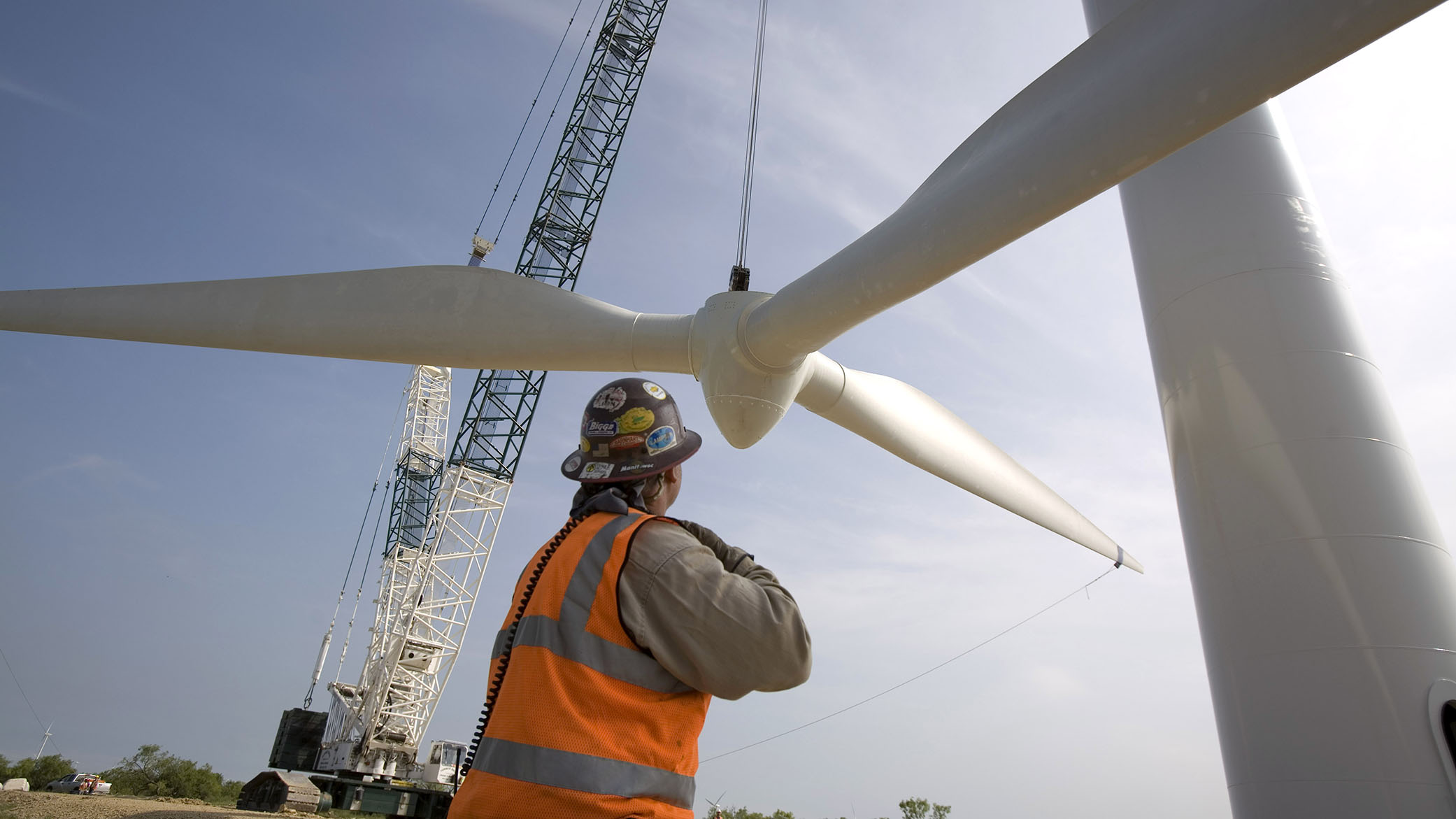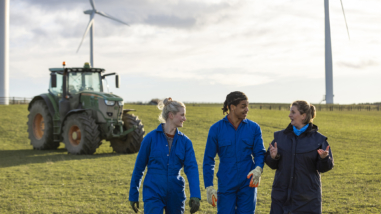Hewlett’s U.S. Climate strategy prioritizes building for a better future

Over the past decade, the U.S. has faced significant challenges, including an escalating climate crisis, increased polarization, rising inequity, and the profound impacts of a global pandemic. These threats could have led to inaction, but instead, a promising trend has emerged.
We are witnessing a new wave of ambitious initiatives that illustrate how government investments and interventions can help shape and build a better future by aligning private ambitions and market forces with collective goals. From accelerating COVID vaccine development to revitalizing U.S. manufacturing, the U.S. is demonstrating the tremendous role that governments — in partnership with workers, companies, and communities — can play in addressing broader issues in ways that go beyond the private sector’s capacity. This includes improving energy access and reliability, boosting economic competitiveness, advancing environmental justice, and tackling inequality.
Nowhere is the need for a bold new approach to address big challenges more important than in building a clean energy economy. Over the past four years, Congress has approved over $2 trillion in climate-related investments, much of which passed with bipartisan support. These investments represent a crucial opportunity to build a better future. Yet, government action alone is not enough — philanthropy also has a vital role to play. This is why the Hewlett Foundation is evolving its U.S. Climate strategy.
To drive climate progress, philanthropy must not only support the effective implementation of new laws to scale the industries needed to power our lives and economies in ways that also stabilize our climate, but also ensure that their benefits reach the communities that need them most. This includes rural areas where economic opportunities are, too often, scarce, Tribal communities affected by ongoing legacies of extraction, environmental justice communities harmed by pollution, and regions that have historically, and can continue to, power the country.
To achieve zero emissions by mid-century, Hewlett’s updated strategy aims to be resilient to inevitable political shifts. We will support efforts that create new financial and economic opportunities around the country in ways that maintain and build support for climate solutions. We will help ensure that public funds continue to leverage private sector investments and benefits accrue to workers, companies, and communities in zip codes across the U.S. In these ways, we will build momentum for future climate progress.
Moving forward, Hewlett will focus on removing barriers and obstacles to a low-carbon economy. This includes:
- Ensuring that public and private investments translate into scaling the deployment of clean technologies and providing tangible, on-the-ground results, particularly in areas where a clean energy economy can be transformative for communities and workers.
- Supporting research, education, advocacy, and strategic communications to facilitate the effective implementation of climate-related laws.
- Advancing technological innovation while ensuring that the benefits of a low-carbon economy are distributed equitably.
- Fostering collaborations across various levels of government and with public, private, and civil society actors.
While we are clear-eyed about the potential risks and threats to global climate progress, we are resolute in the belief that success only comes when workers, companies, and communities share in the benefits that the buildout of a clean energy economy will bring. If we succeed, we have the potential to create a virtuous cycle that promotes domestic supply chain development, high-wage job creation, and broad economic benefits for workers and communities. We can reaffirm the U.S.’s global climate leadership, enhance clean energy technology, and inspire further climate action worldwide.
At this pivotal moment, the Hewlett Foundation is poised to support grantees as they play a transformative role in shaping climate progress and fostering the ambition needed for a sustainable, flourishing future. We look forward to sharing our progress and learnings along the way.



